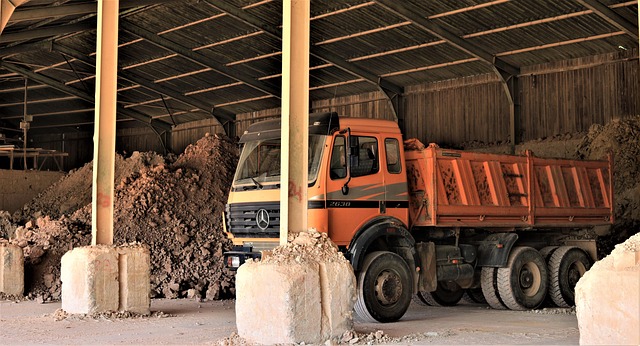Commercial gas hot water heaters, featuring tankless systems and condensing technology, offer superior energy efficiency and instant hot water for businesses like restaurants and hotels. Building automation integration allows precise temperature control, intelligent scheduling, and real-time monitoring, optimizing performance and reducing utility costs. High-capacity tankless systems are space-saving and sustainable, making them the preferred choice for modern institutional water heating. Strategic implementation requires assessing facility needs, choosing the right heaters, and ensuring regular maintenance for optimal efficiency and environmental benefits.
In today’s digitally advanced world, integrating smart technology into building systems is no longer a novelty but a necessity. One such area seeing significant innovation is commercial gas hot water heating. This article explores the merging of these two sectors with a focus on understanding commercial gas hot water heaters and the benefits of building automation integration. We’ll delve into key features, implementation considerations, and maintenance to highlight why this combination represents a game-changer for energy efficiency and cost savings.
- Understanding Commercial Gas Hot Water Heaters
- Benefits of Building Automation Integration
- Key Features and Technologies in Smart Water Heaters
- Implementation and Maintenance Considerations
Understanding Commercial Gas Hot Water Heaters

Commercial gas hot water heaters are designed to meet the demanding hot water needs of businesses and institutions. These units offer a reliable and efficient solution for large-scale water heating applications, such as those found in restaurants, hotels, and other institutional settings. Unlike traditional storage tank heaters, tankless gas systems provide instant hot water without the need for a large storage vessel, resulting in significant space savings and reduced energy consumption.
The integration of condensing technology into commercial gas hot water heaters further enhances their energy efficiency. By capturing and utilizing the waste heat from the exhaust gases, these systems can achieve higher overall heating efficiencies, contributing to lower operational costs and a smaller environmental footprint. High-capacity water heaters capable of catering to substantial hot water demands are crucial for ensuring smooth operations in busy establishments, where reliable and consistent hot water supply is paramount.
Benefits of Building Automation Integration

Building automation integration offers a multitude of benefits for commercial gas hot water heaters. By seamlessly connecting these devices to a centralized control system, facilities can achieve significant energy savings and enhanced operational efficiency. Automated controls allow for precise temperature adjustments, intelligent scheduling, and remote monitoring, optimizing water heating processes in real-time based on specific needs. This technology ensures that commercial hot water systems operate at peak performance, reducing waste and lowering utility costs.
Moreover, integrating gas fired heating into building automation systems promotes the use of high capacity water heaters and tankless gas systems, which are renowned for their energy efficiency and condensing technology. These advanced solutions replace traditional storage tank heaters, providing hot water on demand while minimizing standby heat losses. Such innovations are particularly advantageous in demanding environments like restaurants, hotels, and institutional facilities, where reliable and efficient water heating is paramount for daily operations.
Key Features and Technologies in Smart Water Heaters

Smart commercial gas hot water heaters are revolutionizing the way we heat water in institutions like restaurants and hotels. These advanced systems offer a range of key features that set them apart from traditional storage tank heaters. One such feature is building automation integration, which allows for precise control and monitoring of water temperature and usage. This technology enables businesses to optimize their hot water systems, reducing energy consumption and operational costs.
Additionally, these smart heaters leverage innovative technologies like condensing gas fired heating, which improves energy efficiency by recapturing heat that would otherwise be lost in the exhaust. High capacity tankless gas systems offer on-demand heating, eliminating the need for large storage tanks. This not only saves space but also contributes to a more sustainable and environmentally friendly approach to water heating, making them ideal for modern institutional systems.
Implementation and Maintenance Considerations

Implementing a smart commercial gas hot water heater with building automation integration involves careful planning and consideration. It’s crucial to assess your facility’s specific needs, including peak demand, usage patterns, and available space for equipment placement. Selecting the right high capacity water heaters, whether tankless gas systems or storage tank heaters, is essential based on these factors.
Maintenance plays a vital role in ensuring optimal performance and longevity of these energy efficient heating systems. Regular cleaning, inspection, and service by trained professionals are necessary, especially for commercial hot water systems used in demanding environments like restaurants and hotels. Incorporating condensing technology can further enhance efficiency, reducing operational costs and environmental impact, making it a smart choice for institutional systems.
The integration of building automation with smart commercial gas hot water heaters offers significant advantages, including enhanced efficiency, cost savings, and improved control. By leveraging advanced technologies, these heaters can adapt to occupancy patterns and energy demands, optimizing heating processes and reducing waste. This innovative approach not only contributes to sustainability but also provides building managers with valuable data for informed decision-making. With proper implementation and regular maintenance, smart water heaters can become a cornerstone of modern, efficient facilities.
